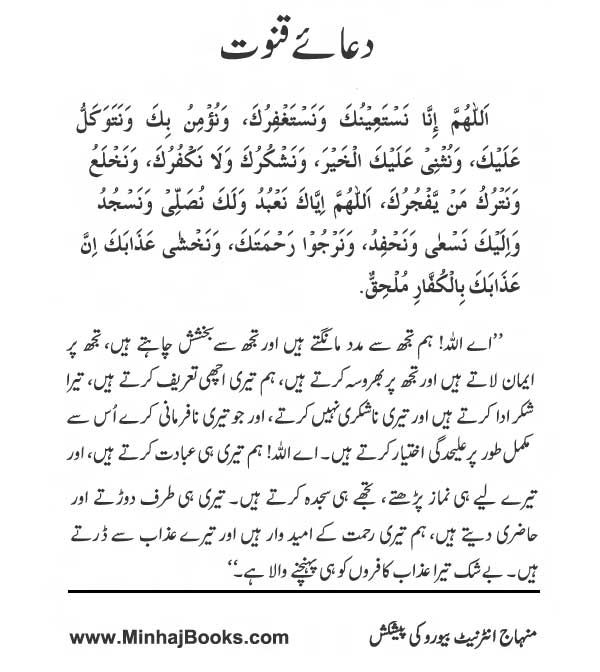


Imam Ibn al-Qayyim said: "It was the practice of the Prophet when travelling to pray only the obligatory prayers, and it was not narrated that he used to pray the regular Sunnah prayers either before or after the fardh prayers, apart from Witr and the Sunnah of Fajr, which he never omitted whether he was travelling or not.” To offer the Dhuha prayer and to pray the Witr prayer before sleeping”. It was narrated from Abu Hurairah who said: “My Khalil (close friend) advised me with three (affairs and) I will not leave them until I die: “To fast three days every month. Narrated Abu Darda: “My beloved Prophet Muhammad ﷺ instructed me in three (acts), and I would never abandon them for as long as I live: Three days of fasting every month, the Dhuha (forenoon) prayer, and that I should not sleep till I have observed the witr prayer.” The numbers of its rak'ah is odd numbers and that is why it is named as witr. While technically, it means: “A specific prayer performed in a specific time as the closing of the night prayers, whether it is done in the beginning, middle or end of the night”. The phrase witr or pronounced as وَتْر / وِتْر - watru and witru linguistically means single (odd numbers) which is the opposite of the phrase shafa’ (even numbers).

Reciting the dua for Qunoot is not a condition or an obligation for the witr to be sound.The Sunnah recitation in Witr prayer is: Surah al-A'la (1st unit), Surah al-Kafirun (2nd unit), and Surah al-Ikhlaṣ (3rd unit).One taslim is permitted when all the rak'ahs are prayed continuously with a sitting for tashahhud after every 2 rakahs. The best form of witr is three rak'ahs with two salams one after the tashahhud of the first 2 rak'ah and then another after the final single rak'ah.Do not liken the Witr prayer to the Maghrib prayer.The witr prayer is at least 1 rak'ah and at most 11 rak'ah.Whoever oversleeps and misses the Witr, or forgets it, should pray (when he awakens) in the morning or when he remembers.

The time of the Witr prayer is between the Isha and the appearance of the Fajr prayer.The ruling on the Witr prayer is that it is Sunnah Mu'akkadah (highly stressed Sunnah).As per the Shariah it is defined as a specific prayer performed in a specific time as the closing of the night prayers, whether it is done in the beginning, middle or end of the night.


 0 kommentar(er)
0 kommentar(er)
